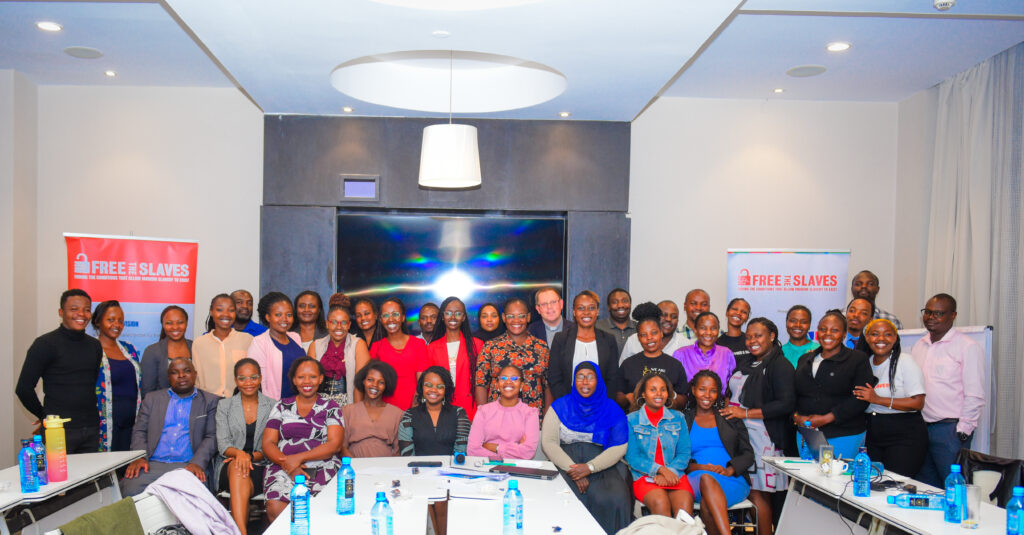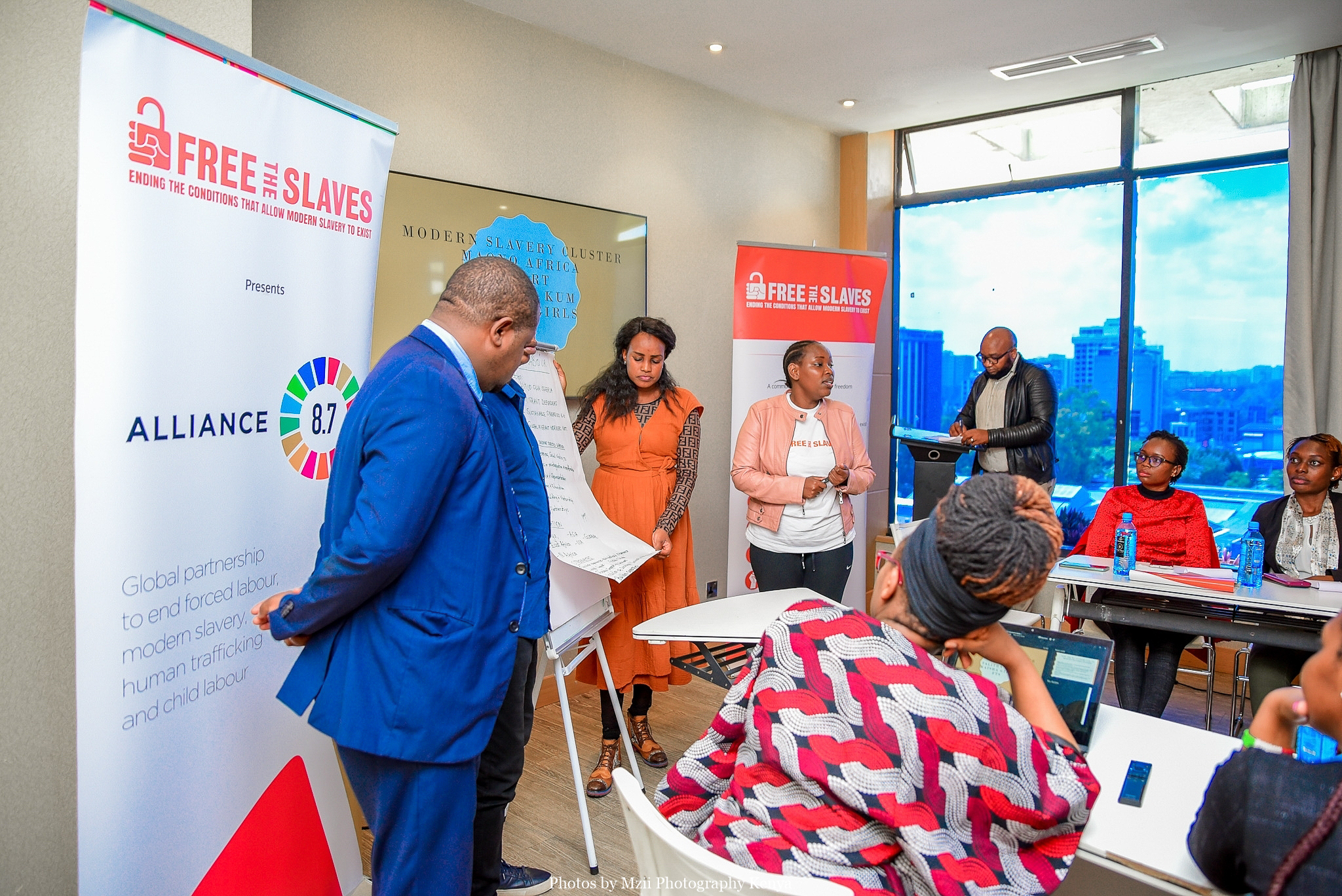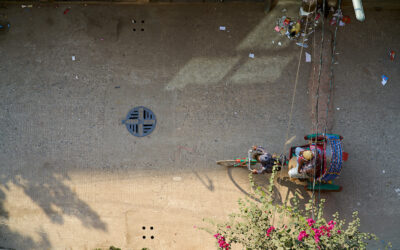In the fight against modern slavery, collaboration is paramount. Nowhere is this more evident than in the efforts of Free the Slaves in East and Central Africa, where partnerships between civil society organizations and the government are paving the way for impactful change.
Partnership with Key Stakeholders
As part of guiding the Kenyan government towards becoming a Pathfinder Country, Free the Slaves has maintained a strategic collaboration with a leading international organization specialized in labor issues. Together, they collaborate discreetly to ensure that survivors’ and stakeholders’ voices are heard and integrated into the development of initiatives aimed at combating child labor, forced labor, modern slavery and human trafficking.
Empowerment of Survivors
At the core of Free the Slaves’ mission is survivor engagement. Through initiatives like the Alliance 8.7 program, survivors are provided platforms to share their stories, advocate for their rights, and lead the fight against slavery. This empowerment not only restores survivors’ agency but also ensures their perspectives shape decision-making processes.
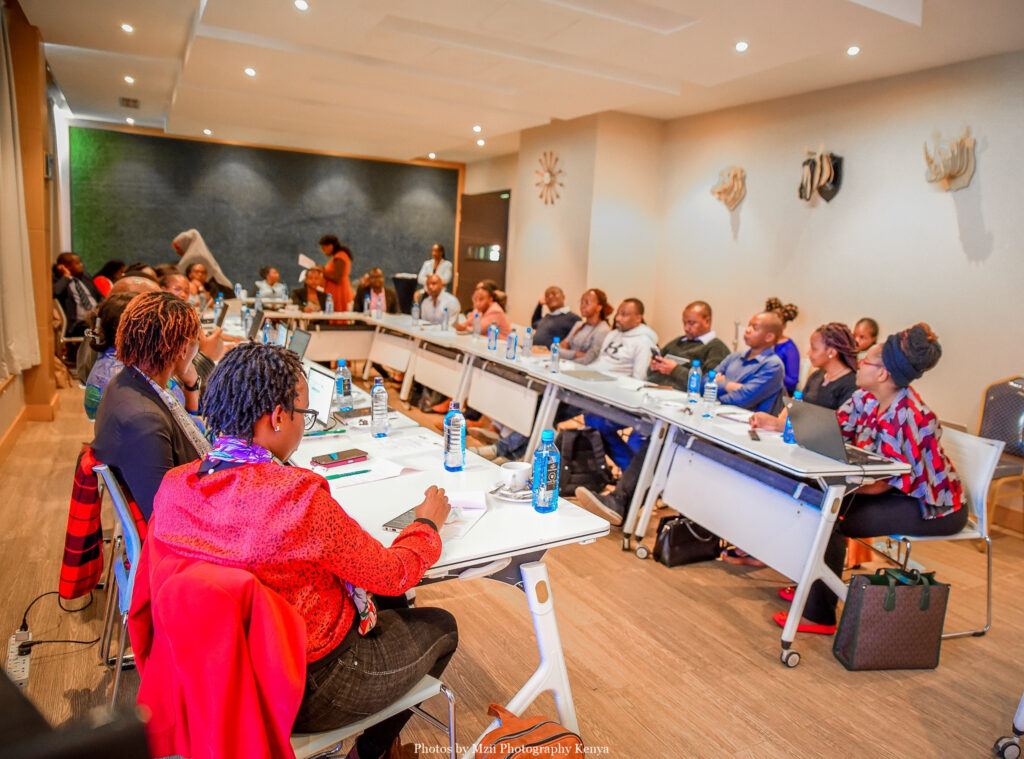
“Before I joined Free the Slaves, I didn’t have the confidence to even speak in front of a big congregation. Now, I am very confident to speak in public and confidently share my experience as a way of creating awareness.” – Survivor Testimonial
“As much as we knew we were survivors; we didn’t know we had the capacity for leadership in us until we were chosen to be one of the survivor representatives.” – Survivor Testimonial Capacity-Building within Civil Society Organizations
Free the Slaves not only invests in building the capacity of local civil society organizations but also encourages these organizations to create opportunities for survivors within their structures. Recognizing the potential and expertise of survivors, Free the Slaves actively involves them in planning and running activities during workshops and events in East and Central Africa.
“Bringing together different survivors from different organizations and sharing their experiences has enabled us to understand each other’s strengths and weaknesses.” – Survivor Testimonial
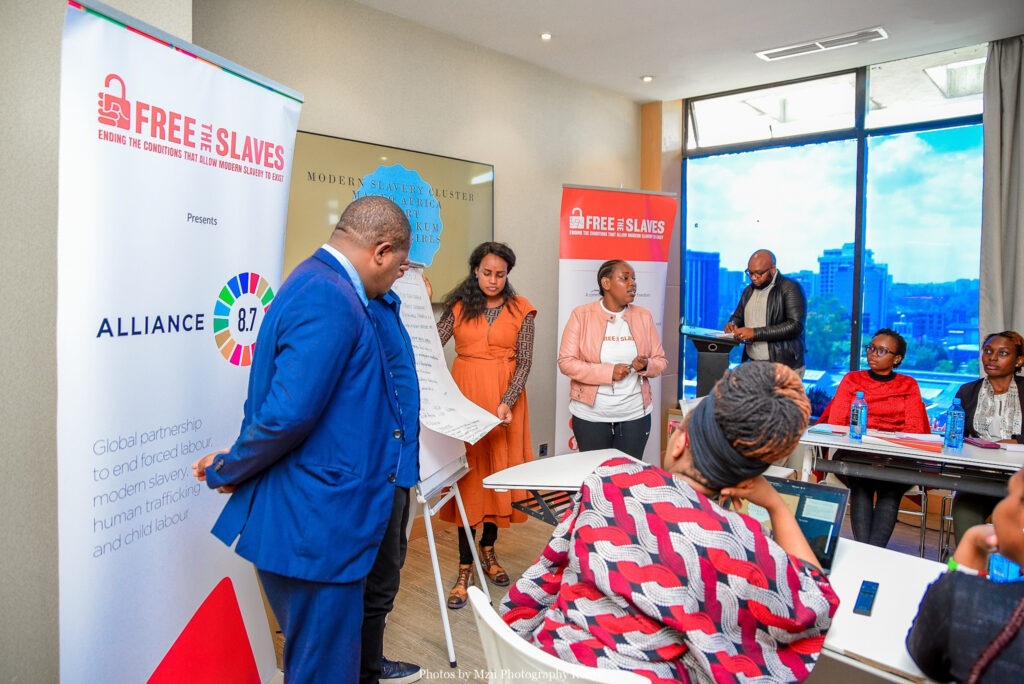
Fostering Collaboration
Collaboration is key to success. Free the Slaves fosters collaboration among civil society organizations through forums, workshops, and networking events. By creating spaces for dialogue and sharing of best practices, they maximize the collective impact of the anti-trafficking movement in East and Central Africa.
Impact on Partner Organizations
Working with survivors has also positively impacted partner organizations. One organization founder expressed appreciation for the transformation of survivors from her organization, noting how they were able to present themselves and articulate issues while in other meetings.
“I appreciate what the survivors from our organization are becoming after they attend meetings. They are more confident and articulate in presenting themselves and addressing issues.” – Organization Founder Testimonial
Another organization staff member shared about their plan to employ survivors to ensure inclusivity and representation, citing this as a valuable learning point from Free the Slaves.
“We are now planning to employ survivors to ensure they are inclusive and represented. This was a great learning point from Free the Slaves.” – Organization Staff Testimonial
As we reflect on the collaborative efforts of civil society organizations in East and Central Africa, it’s evident that Free the Slaves’ approach is yielding impactful results. By building bridges, empowering survivors, and fostering collaboration, they are making significant strides in the fight against modern slavery. Together, we can build a future free from slavery.
